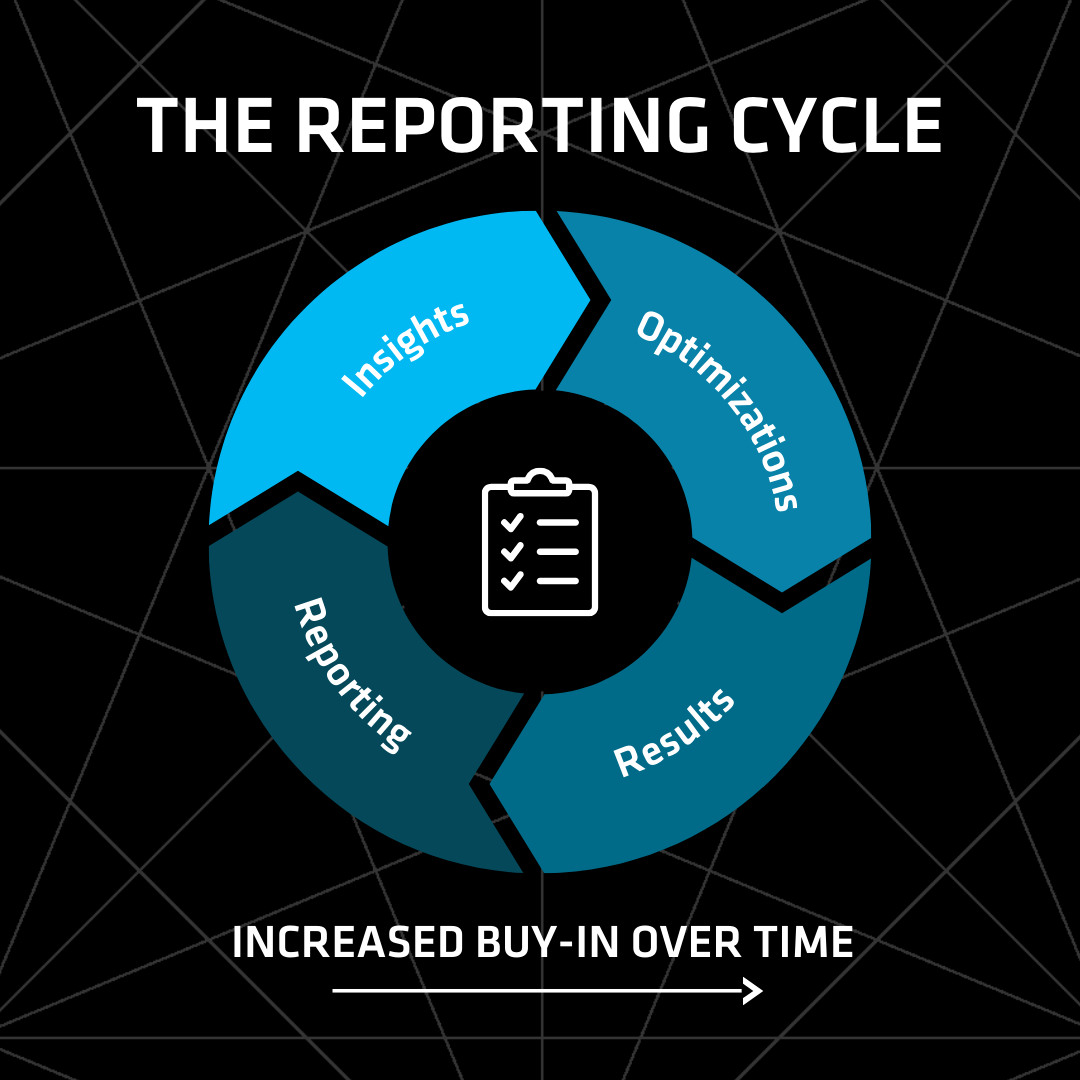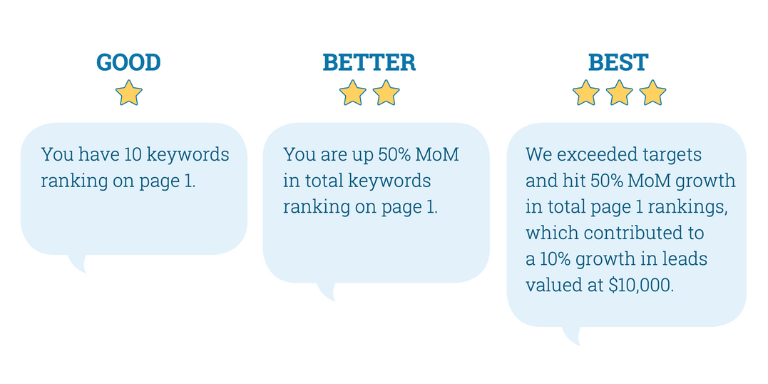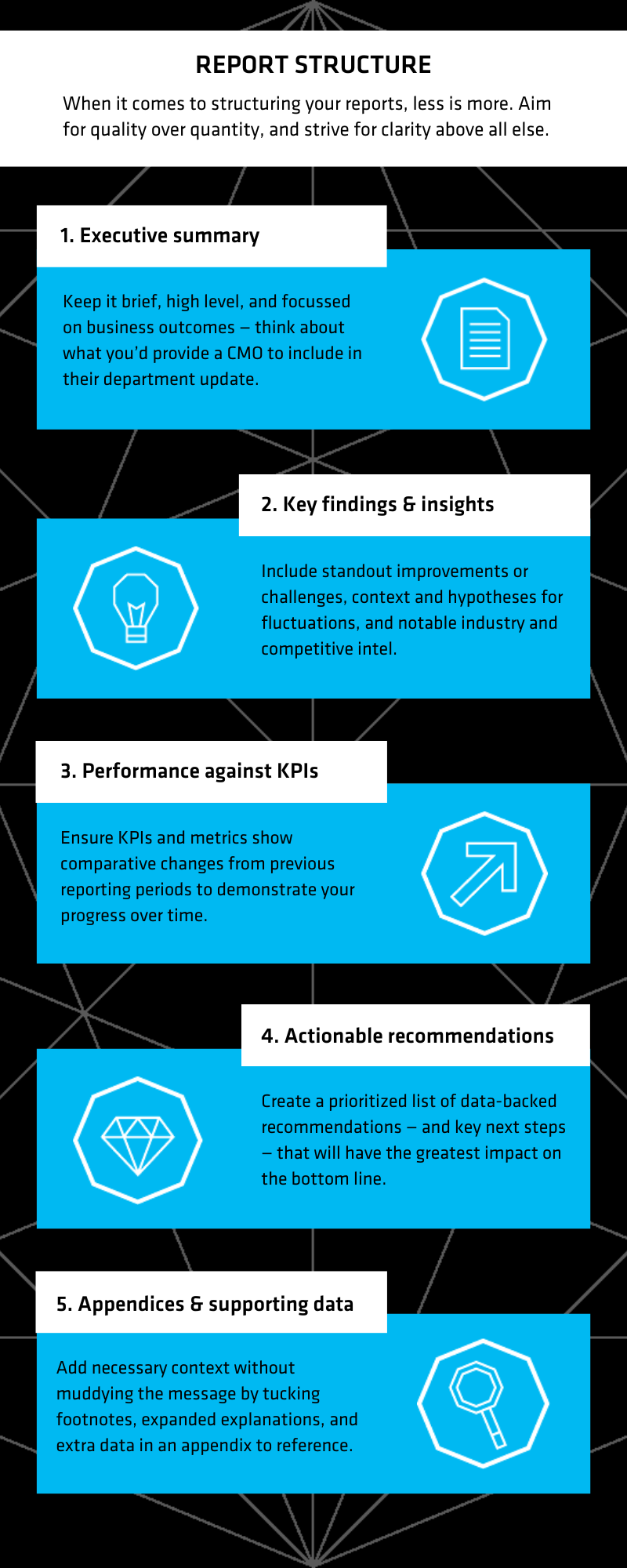Impactful SEO Reporting: 7 Tips For Effective SEO Reports That Build Buy-In – Search Engine Journal
Join us as we explore exclusive survey data from today’s top SEO professionals and digital marketers to inform your strategy this year.
Join us as we explore exclusive survey data from today’s top SEO professionals and digital marketers to inform your strategy this year.
Join us as we explore how to scale the very time-consuming and complicated process of earning links from digital PR, with proven case studies showing how you can earn hundreds of links in 30 days.
This strategy guide is the first step towards attracting high-quality leads and revolutionizing how you think about lead generation.
Join us as we explore how to scale the very time-consuming and complicated process of earning links from digital PR, with proven case studies showing how you can earn hundreds of links in 30 days.
Reserve your spot and discover 10 quick and easy SEO wins to boost your site’s rankings.
Wondering how to get more SEO budget in 2024? Learn how to create SEO reports that build trust with decision-makers and stakeholders.
This post was sponsored by STAT Search Analytics. The opinions expressed in this article are the sponsor’s own.
Wondering how to get more SEO budget in 2024?
Hoping to build a more robust SEO strategy that involves teams and multi-level buy-in?
The answer lies in a great SEO report.
Crystal clear SEO reporting is the key to demonstrating value, impressing your boss, and keeping stakeholders happy.
We know – reporting isn’t the most exciting part of your SEO job – but love it or hate it, no matter how talented a search professional you are, effective SEO reporting can make the difference in:
As you’ve undoubtedly learned so far in your position, SEO cannot exist as an island.
SEO strategies see more impressive results when they are supported by other teams, like the folks responsible for creating content and making changes to a site.
This requires buy-in and prioritization at various levels of the organization to reach its full potential — so, even if creating reports feels especially painful at times, try to view reporting as a necessary vehicle for helping you get to the best-performing SEO strategy possible.
At its core, effective reporting is effective communication.
In the world of SEO, being able to distill down high volumes of nuanced search and keyword data in a straightforward way becomes integral to success.
Taking the initial time to get clear on priorities and set expectations at the onset of a reporting relationship (be it with a colleague, client, internal stakeholder, or executive) is well worth the effort.
Here’s how to get reporting right and gain happier stakeholders by:

Cryptic jargon, unnecessary information, or excessive, in-the-weeds details can quickly turn potential buy-in to frustration and sheer confusion.
To avoid this, you’ll want to ruthlessly tailor the content of your reports to the audience who will be receiving it.
When reporting to C-suite executives like CMOs, you’ll want to report on higher-level, more holistic findings, and always tie metrics back to revenue and ROI.
When reporting to individual contributors, you can be far more detailed — down to the level of individual keyword reports even.
Ensure the KPIs you’re measuring accurately reflect results and progress towards the goals you and whoever receives the report care about most.
Take the time to discuss what each metric means and ensure that stakeholders understand the necessary context around the KPIs you’re reporting to them and why.
Speaking of KPIs, let’s talk about what not to do in your reporting.
You’ve probably heard about the dangers of vanity metrics before — that is, relying on surface-level measurements that may look impressive at first glance, but don’t capture the full picture or could be taken out of context to inflate wins or perceived importance.
While these buzzword or clickbait-type metrics may look good on the surface or in a single report, they can get you into trouble down the road if things don’t quite add up, which can lead to confusion and erode confidence.
The key to effective reporting is demystifying results in a way that is accurate and clearly communicates the outcomes of your work straightforwardly — this transparency helps build trust with stakeholders and encourages continued buy-in down the road.
For example, resist the temptation to overemphasize a keyword ranking win — winning the first organic result for a query with no search volume is not cause for celebration.
By making sure your boss or clients understand the metrics you’re reporting on with the appropriate context, you’ll establish a strong strategic partnership.
Setting Specific Measurable Achievable Relevant and Time-bound goals (S.M.A.R.T.) with stakeholders will help set your reporting relationship up for success.
Not only will it ensure that you’re setting clear expectations, but you’ll also be able to measure and articulate progress toward meeting those goals and demonstrate the value of your work.
Get S.M.A.R.T. when it comes to how you’re communicating, too, as it greatly impacts the perceived value of your work.
The example below from the brilliant Kameron Jenkins illustrates the difference between simply stating facts and communicating value.
Each sentence is based on the same data, but the way that data is communicated vastly changes the impact:

Credit: Kameron Jenkins | Moz — High-Impact SEO Reporting for Agencies
SEO is a marathon, not a sprint.
This is an essential piece of wisdom to share with your stakeholders.
What’s more, the marathon doesn’t have a predefined finish line — in fact, it doesn’t have a finish line at all!
Successful SEO is about making iterative improvements and then leveraging those wins for continued gains.
It’s important to set realistic SEO goals, show steady progress, and articulate that the goal is to incrementally build momentum towards a stronger organic presence that will pay long-term, sustainable dividends into the future.
While we’re self-professed data nerds over here at STAT, data by itself is hard to grasp and can feel arcane to stakeholders who don’t work in SEO.
It’s your job to wrangle that data to make sense of what’s happening on the SERPs and surface strategic insights.
After all, data without insights is pointless.
To take your reporting from metrics to insights, you need to turn your data into a compelling story that highlights opportunities and provides the next steps.
For example, a position one ranking on a search engine results page (SERP) with a local pack, paid ads, and several large SERP features appearing before the organic listings (and pushing rank one below the fold) is not nearly as impactful as a rank one position appearing at the top of a SERP that doesn’t have those extra bells and whistles taking up valuable real estate, and the CTR between the two will vary drastically for good reason.
Or, if a client is struggling to rank for a target keyword, through analysis, you can identify if they are creating the right content for the SERP.
If they’re going after a keyword that surfaces primarily video content, they will need to match that format if they hope to stand a chance, regardless of how masterfully crafted their copy is.
When deciding how to structure your reports, lead with key takeaways, provide intuitive data visualizations, eliminate extraneous information, and do the heavy-lifting surfacing insights.
Relegate any nitty-gritty data to an appendix section — there for reference and to support your claims, but secondary to the takeaways themselves, which should spell out the “so what?” for your audience.

The optimal reporting cadence will vary depending on your unique reporting relationship, but at the very least, once monthly is recommended to establish a consistent touchpoint — and we suggest setting up a standing call to go through it.
Not only will this ensure that stakeholders are actually looking at your reports, but you’re better positioned to answer any questions and articulate recommendations to help facilitate buy-in and follow-through.
In most cases, you’ll want to establish quarterly (on the third month of each quarter) and annual summary reports to look at progress relative to the previous period.
You’ll want to show comparative MoM (month over month) and YoY (year over year) metrics, which are especially impactful in communicating value and ROI to higher-ups and budget holders.
Take the time to get reporting right.
At the end of the day, effective SEO reporting boils down to effective communication.
We hope this has given you the confidence to tackle SEO reporting in a way that demonstrates the value of your work and eliminates confusion with the stakeholders that matter most.
Take the opportunity to position yourself as the expert and educate your audience through your reporting. SEO data will only impact revenue positively if it’s acted upon and leveraged to inform strategy, so establish an ongoing strategic partnership that is cyclical and continues to build trust, loyalty, buy-in, and helps clear barriers for internal approvals.
Once you get the cycle off to the right start, you’ll continue to reap the benefits over time.
If you found this helpful, subscribe to our newsletter for more of the same, straight to your inbox. We’ll email you once or twice a month, tops, with the latest goings-on in the industry and here at STAT.
Image Credits
Featured Image: Image by STAT Search Analytics. Used with permission.
STAT Search Analytics, a product by Moz, is the ultimate SERP tracking and analytics platform for tackling large-scale SEO with ...
Conquer your day with daily search marketing news.
Join Our Newsletter.
Get your daily dose of search know-how.
In a world ruled by algorithms, SEJ brings timely, relevant information for SEOs, marketers, and entrepreneurs to optimize and grow their businesses -- and careers.
Copyright © 2024 Search Engine Journal. All rights reserved. Published by Alpha Brand Media.
source




